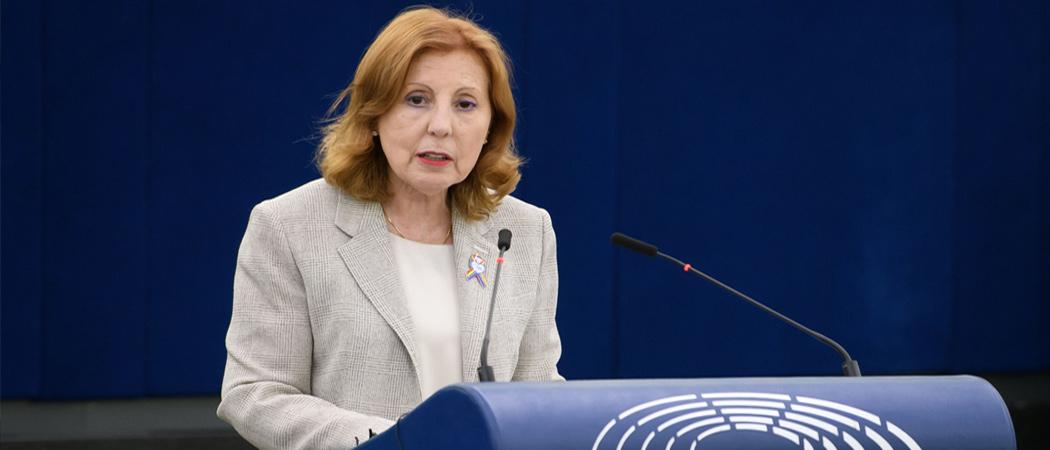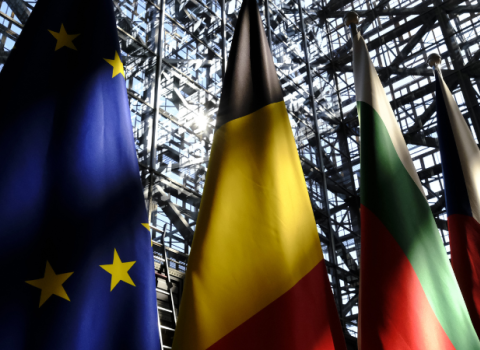Cancer researchers report they are struggling to see how their work fits into the overarching objective of the Cancer Mission to save three million lives, saying the calls are not targeted at the fundamental science needed to deliver on this objective

Maria da Graça Carvalho, Member of the European Parliament. Photo: European Union
Horizon Europe must shift the focus to hands-on, collaborative cancer research, two coordinators of the European Parliament’s industry, research and energy committee told the European Commission.
In a letter sent to research commissioner Mariya Gabriel this week, MEPs Christian Ehler and Maria da Graça Carvalho cite complaints from researchers about the new high-profile Horizon Europe Cancer Mission moving the emphasis of cancer-related projects towards dissemination, promotion and networking activities and away from fundamental research. The MEPs want balance restored in the next Horizon Europe work programme.
In May, the two MEPs ask for feedback on Horizon Europe from leading researchers in five cancer research centres in Portugal. From each one came the same story, that the cancer mission is difficult to understand and that the calls for collaborative research are hard to read. At the same time, researchers are very happy with the grants for fundamental research given out by the European Research Council (ERC).
Hopes were high for cancer research in Horizon Europe, with the cancer mission setting out to save three million lives by the end of the decade, a target that generated a buzz around the topic. But a year and a half into the EU’s new budget cycle, scientists feel the research that should be underpinning that goal has been sidelined by an emphasis on implementation and strengthening treatment infrastructures.
“They were expecting a push on research in cancer, as cancer has been put very high on the political agenda,” says Carvalho told Science|Business. “We need to make sure our R&I programme properly finances our top scientists.”
The MEPs hope their plea will be heard before the Commission draws up the work programme detailing Horizon Europe calls for 2023 and 2024. “There is the need to change this trend and include a special focus on cancer research into the next 2023-2024 work programmes,” they told Gabriel in the letter.
Bigger picture
The Horizon Europe Cancer Mission’s €500 million budget has to date been dedicated to networking projects, setting up digital patient centres and strengthening cancer infrastructures. Little money has gone to hands-on research and scientists working on the basic biology of cancer are finding it difficult to understand how their work fits into this bigger picture approach.
“These calls are complementary actions and not focused on the essential points,” says Carvalho. “At the centre, the mission should have research.”
Alongside the mission, cancer research is funded under Horizon Europe’s pillar for collaborative research. Here, researchers say they struggle to pinpoint appropriate calls.
In comparison to the previous research programme Horizon 2020 research, Horizon Europe is more holistic. Instead of opening targeted calls for cancer or cardiovascular disease, the Commission has launched calls focused on staying healthy, or ensuring access to sustainable healthcare, among other examples. As a result, researchers are not always confident they are applying for the right calls.
And as ever, there are complaints about the administrative burden that comes with applying for funding, an issue that the Commission argues cannot be avoided when running a €95.5 billion public fund. There are many programmes within Horizon Europe, from the industrial research partnerships to those run by Commission’s research and innovation agencies. Scientists often do not have the time to learn to navigate the complicated EU research landscape.
“The budget is a bit fragmented and we really need to put it together in a simple way […] because our researchers have such an important task and need to devote their time to their research,” said Carvalho.
She hopes the Commission’s latest guidance on synergies within the programme can help organisations navigate the complicated landscape.
Carvalho says she is happy with the Parliament’s rapport with the commissioner and believes Horizon Europe will keep improving and evolving. Over the years, the EU has invested at least €3 billion in approximately 2000 cancer research and innovation projects, according to data from 2021, and the investment keeps climbing. “We are not asking that we pick ways or solutions. What we’re asking [for] is focus,” Carvalho said.





 A unique international forum for public research organisations and companies to connect their external engagement with strategic interests around their R&D system.
A unique international forum for public research organisations and companies to connect their external engagement with strategic interests around their R&D system.